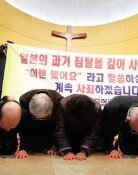[Opinion] Korea Universitys Admissions Policy
[Opinion] Korea Universitys Admissions Policy
Posted May. 05, 2007 03:02,
The pronunciation of Bowdoin University in Brunswick, Maine, is an oft-debated subject. Many Americans pronounce it Bowdoin literally. However, for some reason, alumni and school faculty pronounce it Bouden. The school is also famous for its unique admissions policy. Unlike other schools, Bowdoin does not demand applicants to submit SAT scores. It does so in order to accept students with diverse talents.
In stark contrast, the Ministry of Education and Human Resources Development in Korea meddles with colleges in the student selection process.
Against this backdrop, Korea University is putting out a meaningful admissions policy this year. The prestigious university in February announced sensational policies to select up to 50 percent of students only using college scholastic ability test (CSAT) scores from the 2008 academic year. Schools including Yonsei followed in its footsteps. Recently, Korea University also came up with a plan to increase the ratio of high school records for up to 50 percent of its general admissions capacity, based on a survey which found high school students had better performances than their counterparts in schools established for special purposes.
The bold changes did not end there. At an admissions policy hearing in March, the university released CSAT scores and subject grades of successful candidates from 2005 to 2007, saying that the discrepancy between their actual CSAT scores and estimates released by private institutes caused confusion. Even as other schools jealously assailed the decision to rank universities, it went ahead with making the records public, putting priority on providing exact information to applicants. Applicants and their parents were moved, while private institutes were taken aback.
The schools decision shows that universities can break the stereotypes of admissions policies dominated by the CSAT, high school records, and essays. According to Korea Universitys plan, if any among the three criteria are excellent, the student will stand a good chance to be chosen. When Seoul National University tried to increase the proportion of essays, Korea confidently sought to reduce it after the acknowledgement that they do little to differentiate student ability. The effort to develop an autonomous model within the framework of standing educational regulations is commendable. How would education authorities who disliked the universitys February announcement react to the recent decision? Korea University has already showed that autonomy is the best admissions policy.
Chung Sung-hee, Editorial Writer, shchung@donga.com







